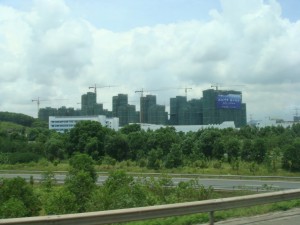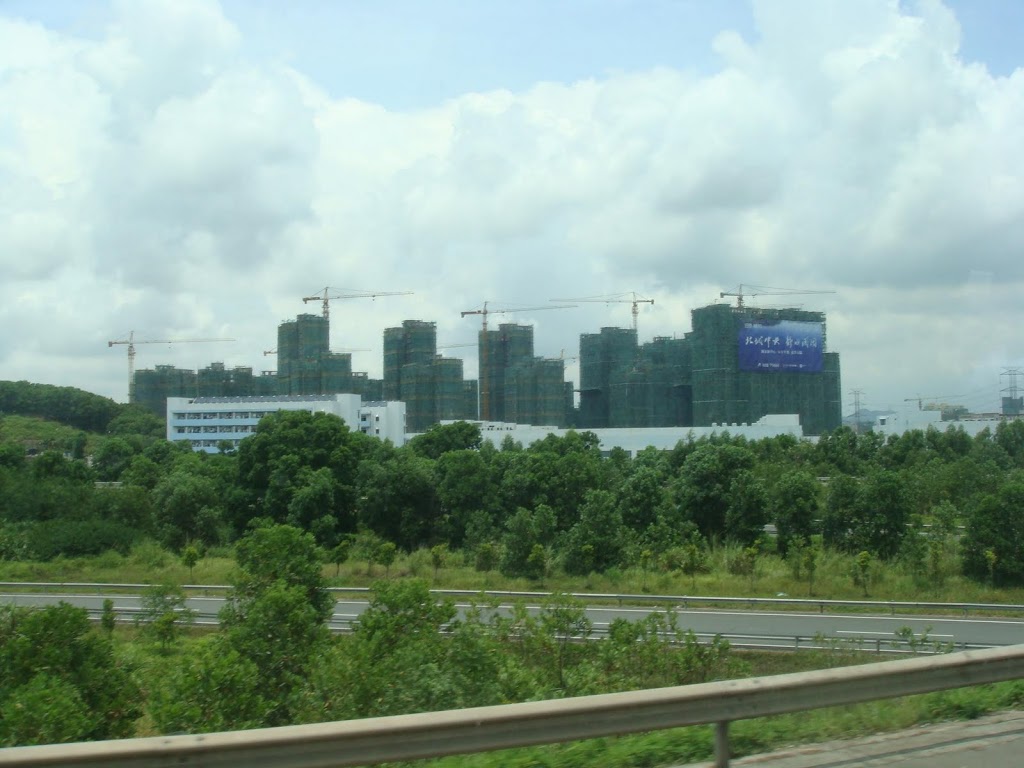Guanxi (see last post) came in handy again this weekend: the lawyer for the school happens to be the lawyer at a nearby resort, and so some fellow teachers and I found ourselves installed in lakeside bungalows with a free ticket to the spa. It was even better than the
80 cent DVDs.
The resort was on the outskirts of Shenzhen, a coastal city adjacent to Hong Kong. In 1980, the Chinese government declared Shenzhen a ‘special economic zone’: a hopeful utopia where western-style market capitalism could blend with Chinese social (and socialist) values, generating prosperity ‘capable of satisfying the needs of any person or business,’ to quote a tourist guide I picked up.
Like any well-thought out act of social engineering, Shenzhen comes with a creation myth. I will attempt to paraphrase from a variety of disagreeing sources.
From the first days of population in the 12th/15th century until the 1970s, the city was a poor and backwards/idyllic and wholesome fishing village. Evil British/admirable-mostly-Chinese Hong Kong pressured/inspired Deng Xiaoping to grant ‘Special Economic’ status in 1980 in an attempt to resurrect China from the economic disasters wrought by the visionary/bat-crazy Mao Zedong. A windfall of hasty/miraculous foreign investment resulted in unprecedented growth: Shenzhen, colloquially known as the ‘Overnight City’, has been the fastest-growing urban area in China for the last thirty years.
That the city’s success revolutionized China’s economic system is undisputed. Whether or not that is a good thing is the subject of heated debate.
The drive from Dongguan to Shenzhen carves through the the hills of the Pearl River Delta on China’s southwestern coast. I’ve driven through the Pallisades in New Jersey and the Delaware water gap every summer of my life and always thought of hills as rolling. Here, they rise and fall like mini-mountains, or a choppy sea frozen mid-swell. Many are grooved with terraced rice fields, reminding me for the hundredth time of how long people have been living in China. Some look like they hadn’t been cultivated for centuries, but still bear the marks of human hands: trees grow in obedient rows, mountain streams turn at abrupt and useful places. I’ve never seen such compelling evidence that humans can control the natural world.

